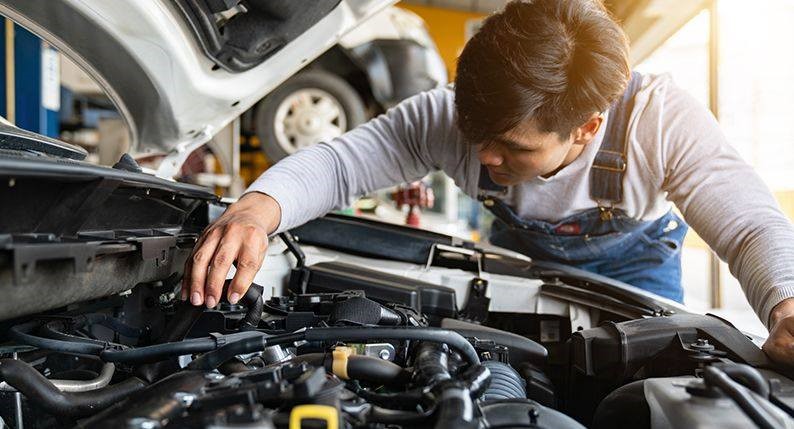Cars, as indispensable tools in modern life, directly impact driving experience and personal safety. Statistics show that vehicles with regular maintenance see a 60%+ reduction in failure rates, while proper repair knowledge helps owners avoid scams by unethical businesses. This guide systematically covers common car issues, basic maintenance, repair options, and DIY tips to turn you into a “car-savvy driver.”

I. Why Car Repair Knowledge Matters
- Extend Vehicle Lifespan
Regular replacement of key components like oil and filters can extend engine life by 5-8 years.
Example: A well-maintained Toyota Corolla remained in good condition after 300,000 km. - Ensure Driving Safety
Brake system failures account for 12% of traffic accidents—regular checks prevent danger.
Excessively worn tires reduce grip, increasing skidding risks in rain. - Save Repair Costs
Addressing minor issues promptly avoids major overhauls (e.g., delayed belt replacement causing engine damage).
Basic DIY skills can cut 30% of routine maintenance costs.
II. Common Car Issues & Solutions
- Engine ProblemsSymptomPossible CauseSolutionDifficult startingDead battery, worn spark plugsCheck battery voltage; replace plugsAbnormal shakingSevere carbon buildup, misfireClean throttle; inspect ignition coilsBlue exhaust smokeOil burningCheck piston rings, valve seals
- Chassis & Suspension
- Strange noises: Likely worn suspension bushings or leaking shock absorbers.
- Pulling while driving: Needs wheel alignment; check for uneven tire wear.
- Electrical System Failures
- Non-functioning lights: Check fuses or relays.
- Stuck windows: Possible switch or motor failure.
III. Basic Maintenance Items & Schedules
| Item | Recommended Interval | Function |
|---|---|---|
| Oil change | 5,000-10,000 km | Lubricates engine, reduces wear |
| Air filter replacement | 10,000-20,000 km | Ensures clean airflow, boosts power |
| Brake fluid change | 2 years or 40,000 km | Prevents brake system corrosion |
| Tire rotation | 10,000 km | Extends tire lifespan |
Note: Intervals may vary by model—refer to your Owner’s Manual.
IV. Repair Options: 4S Dealerships vs. Local Shops vs. DIY
| Factor | 4S Dealerships | Local Repair Shops | DIY |
|---|---|---|---|
| Cost | High (expensive labor) | Moderate | Lowest (materials only) |
| Expertise | Factory-trained, full equipment | Experienced, flexible | Requires knowledge |
| Best for | Major repairs, under warranty | Routine maintenance, minor fixes | Wiper replacement, adding washer fluid |
Tips:
- Use 4S dealerships for new cars under warranty.
- Choose reputable independent shops post-warranty.
- Learn to handle simple tasks (e.g., air filter replacement).
V. 5 Essential DIY Tips
- Replace wipers: Lift the arm, press the clip to remove (5 minutes).
- Add washer fluid: Locate the blue-capped reservoir; use antifreeze type in winter.
- Check oil: Wait 10 minutes after shutdown; level should be between MIN and MAX on the dipstick.
- Change spare tire: Jack up the frame (not body); loosen bolts diagonally.
- Clean carbon buildup: Regular highway drives or fuel additives work.
VI. Avoiding Repair Scams
Beware of over-repair: “Transmission needs overhaul” may just require fluid replacement.
Reject uncertified parts: Poor-quality brake pads risk safety.
Keep repair records: Aids in disputes and preserves resale value.
VII. Future Trends: Smart Car Repair
- OBD scanners: Connect to your phone to read codes (e.g., “P0172” = rich fuel mixture).
- Remote monitoring: Some EVs send real-time battery health updates.
- AR repair assistance: Glasses project disassembly steps (BMW piloting this).
Conclusion
Mastering basic car repair knowledge saves money and ensures safety. Aim for a full inspection every 6 months and stick to routine maintenance. Your car deserves careful care!



